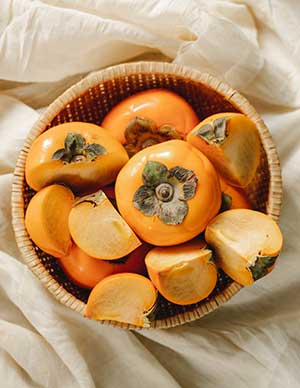Persimmon Fruit - A Brief History

The origins and history of the persimmon fruit can be traced back to ancient China, where it was considered a symbol of longevity and good health. It was believed to have powerful medicinal properties and was used to treat various ailments, including coughs, colds, inflammation, and digestive problems.
During the Tang Dynasty in China (618-907 AD), persimmons were popular among the ruling class. Emperor Xuanzong was said to be particularly fond of the fruit and ordered that it be grown in the imperial orchards. Buddhist monks also highly prized persimmons, which they saw as a symbol of enlightenment and purity.

In the 19th century, Commodore Matthew Perry introduced persimmons to the United States after bringing them back from his trips to Japan. However, it wasn't until the 20th century that persimmon cultivation became widespread in the United States, particularly in California.
Today, persimmons are grown in several parts of the world, including China, Japan, Korea, Spain, and the United States. The fruit has become increasingly popular in recent years due to its health benefits and unique flavor. In many cultures, the persimmon fruit is also associated with good luck and prosperity.
Health Benefits of Persimmons

Conclusion:
The persimmon fruit has a rich and fascinating history that spans thousands of years and many cultures around the world. From ancient China to modern-day America, the persimmon has been prized for its unique flavor, nutritional value, and medicinal properties. Today, persimmons continue to be enjoyed by people of all ages and cultures, and their popularity is sure to continue for many years to come, making it an ideal sustainable investment.
